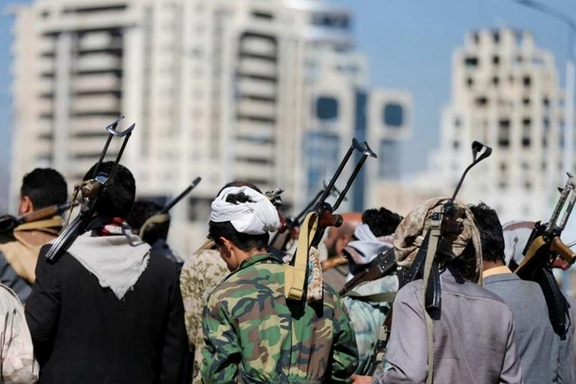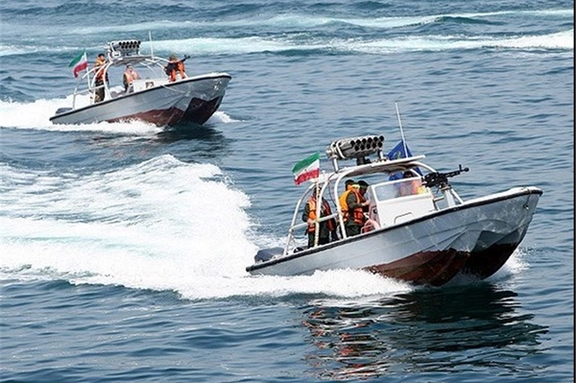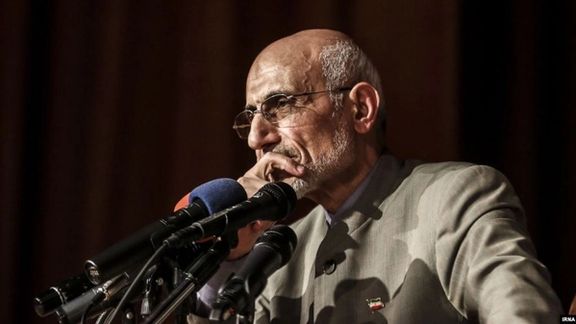Houthis Say They Fired 14 Drones At Targets In Saudi Arabia

Yemen's Iran-backed Houthi movement said on Saturday it had fired 14 drones at several Saudi cities, including at Saudi Aramco facilities in Jeddah.

Yemen's Iran-backed Houthi movement said on Saturday it had fired 14 drones at several Saudi cities, including at Saudi Aramco facilities in Jeddah.
There was no immediate Saudi confirmation. Saudi Aramco, the state oil firm, said when contacted by Reuters that it would respond at the earliest opportunity.
The Houthi military spokesman said in a televised press conference that the group had also attacked military targets in Riyadh, Jeddah, Abha, Jizan and Najran.
The Houthis have intensified their missile and drone attacks at Saudi Arabia this year, while the Biden Administration removed the group from its terrorism designation and urged Riyadh to try harder for an agreement over Yemen.
The Saudi-led coalition attacked Iran-affiliated targets in Yemen on November 17 after intercepting a drone that attempted to attack an airport in Saudi Arabia on Thursday.
The coalition was taking "operational measures to deal with the sources of hostile cross-border attacks," Saudi state news agency SPA reported.
Secret locations of Iranian Revolutionary Guards and Lebanese Hezbollah forces were targeted.
Reporting by Reuters

Bahrain's foreign minister, Abdullatif Al Zayani, said on Saturday that Lebanon needs to demonstrate that its powerful Iran-allied Hezbollah movement can change its behavior to mend a rift with Gulf Arab states.
Lebanon is facing a diplomatic crisis with Gulf states, triggered by a minister's critical comments about the Saudi-led intervention in Yemen that prompted Saudi Arabia, Bahrain and Kuwait to expel Lebanon's top diplomats and recall their own envoys.
Concerned about Hezbollah's growing influence, Gulf states - traditional aid donors to Lebanon - have been withholding support to the country which is suffering a deep economic crisis.
"We (can) extend support and try to find solutions in the future, but once it is demonstrated that Hezbollah can be changing its behavior," Zayani told the IISS Manama Dialogue security forum in Bahrain.
Riyadh, locked in a regional rivalry with Iran, has said its measures last month against Lebanon, including an import ban, were not only in response to the minister's remarks, but were also to demonstrate unease over Hezbollah's "domination" of Lebanese politics.
Lebanon's newly appointed information minister George Kordahi said his remarks were made in an interview before he joined the cabinet and has refused to apologize or step down. Hezbollah's leader has supported him in the diplomatic row and rejected calls for his resignation.
Report by Reuters

Unknown perpetrators hurled an incendiary device at the entrance of Iran’s consulate in the northern German city of Hamburg Friday, which is being investigated.
The attack that took place in the Winterhude district resulted in some damage to the building, but no one was reported hurt.
Local media say since there is strong likelihood of a political motive, German security agencies are involved in the investigation.
The incident coincides with the anniversary of November 2019 protests in Iran when security forces killed hundreds of demonstrators. Opposition groups have been holding gatherings in Hamburg on Friday and Saturday.
Although many diaspora Iranians oppose the Islamic Republic, attacks on Iran’s diplomatic missions are not common.

Defense Secretary Lloyd Austin sought on Saturday to reassure nervous allies in the Middle East that the Biden Administration was committed to the region.
In a speech in Bahrain during a trip to the Gulf, Austin acknowledged concern in the region and globally that the United States was solely focused on China's challenge. He also defended the Biden Administration policy of engaging in talks with Iran over its nuclear program.
"Let's be clear: America's commitment to security in the Middle East is strong and sure," Austin said.
He said the United States was committed to countering Iran, even as Washington works to revive the 2015 nuclear deal. But there has been little forceful reaction to Iran delaying the resumption of nuclear talks, or to intermittent attacks on US forces in Iran and Syria blamed on Tehran’s proxy militias.
"We remain committed to a diplomatic outcome of the nuclear issue. But if Iran isn't willing to engage seriously, then we will look at all the options necessary to keep the United States secure," Austin said.
Austin also pledged to counter Iran's "dangerous use" of suicide drones in the wider Mideast that have proliferated in recent months.
The Pentagon chief said that Washington would be coming to the indirect negotiations on reviving the deal starting on November 29 in Vienna in good faith.
"But Iran's actions in recent months have not been encouraging - especially because of the expansion of their nuclear program," he Austin said.
Gulf states have asked for any deal to address what they call Iran's ballistic missile program and destabilizing behavior in the region.
It was unclear how much impact Austin's speech would have with Washington's allies in the region, since it was not backed by any announcements of further deployments or new weapon sales in the region.
Gulf Arab states, heavily reliant on the US military umbrella, have expressed uncertainty about President Joe Biden's focus on the region, especially after the hasty US withdrawal from Afghanistan. They are now closely watching efforts to revive the 2015 Iran nuclear agreement known as JCPOA, as Tehran continues uranium enrichment and support for proxy forces throughout the Middle East.
'IMPENDING AMERICAN ABANDONMENT'?
While a number of US administrations have tried to move the focus away from the Middle East and towards the Pacific, Biden in August ended the longest US war, in Afghanistan.
"There's dismay that the United States is on its way out the door. I'm not sure messaging addresses that sense of impending American abandonment," Jon Alterman of the Washington CSIS think-tank told Reuters.
A senior US defense official, speaking on condition of anonymity, said Austin was not expected to make new commitments in the region during his trip.
Saudi Arabia, one of Washington's closest regional allies, has been frustrated by the approach of Biden's White House, which has pressed Riyadh to improve its human rights record and end the war in Yemen. Iran’s answer to this has been more missile and drone attacks on Saudi Arabia by its Houthi allies in Yemen.
Former Saudi intelligence chief Prince Turki al-Faisal, attending the Manama security forum, welcomed verbal assurances but said "demonstrative actions are equally important".
He cited the need to prevent Yemen's Iran-aligned Houthis from obtaining arms. Washington is pressing Riyadh to lift a coalition blockade on Houthi-held areas, a condition from the group for ceasefire talks.
Austin was set to visit Saudi Arabia in September, but the trip was postponed at the last minute. He will not be visiting Riyadh on this trip.
Reporting by Reuters and AP

Iran’s Revolutionary Guard has seized an oil tanker “for smuggling diesel” in the Persian Gulf region, days before nuclear talks are set to resume in Vienna.
An official of the Islamic Revolution Guard Corps (IRGC) did not provide the name or country of origin of the tanker but said it was carrying “150,000 liters of smuggled diesel” fuel. This is a small cargo on the international scale of oil tankers and could be a local vessel.
Ahmad Hajian, a naval commander said Saturday that the ship was seized in Iranian waters but did not provide details about the nationality of the 11-member crew and the tanker’s ownership.
Iran has seized large and small vessels in the past claiming they were engaged in illegal activities. Some of these seizures have led to diplomatic wrangling such as the seizure of a South Korean vessel earlier this year or a Vietnamese tanker in October.
Iran itself has been shipping illicit oil to neighboring countries and to Asia during international sanctions (2011-2015) and current US sanctions imposed in 2018.

President Ebrahim Raisi's "inaction" and "indecision" have frustrated Iran's conservatives and hardliners in parliament who supported him just weeks ago.
Mostafa Mirsalim, a long-time conservative politician, and former presidential candidate has said that the Raisi administration is unable to meet the people's expectations. Referring to frequent protests to economic hardships outside the Majles, Mirsalim said that people have every right to be unhappy about Raisi's performance.
Mirsalim also said that the government's inaction in solving economic problems cannot last for too long. He warned that "There are groups who might take advantage of the situation and make it even worse."
Moderate news website Rouydad24, which carried the interview with Mirsalim warned in a report by Mohammad Auyati that although most protests in Iran were political in nature until a decade ago, nearly all protests since have been motivated by declining prosperity. However, while the website attributed most economic problems to the impact of US sanctions, Mirsalim and other establishment politicians prefer not to mention the sanctions.

The reason is that if sanctions are highlighted, questions immediately arise about Iran’s nuclear program and foreign policy. Already many commentators have been openly saying that without improvement of relations with the United States Iran’s economy cannot come out of its current crisis.
Meanwhile, Ahmad Bighash, another hardline lawmaker, said that the members of Raisi's economic team are not competent enough to tackle the country's ongoing problems. Referring to systematic corruption in Iran, Bighash pointed out that "Most of those who should address the problem of corruption in Iran are themselves involved in corruption in one way or another or their children are implicated in corruption-related cases. That explains why we have not been successful in dealing with corruption."
On Thursday, hardline academic Mohammad Sadeq Koushki said that "Raisi has not done anything to solve the people's problems," and warned that "this is likely to affect the public’s attitude toward his administration." Koushki said that the Iranian government has lost most of its political capital among Iranians during the past eight years under President Hassan Rouhani and the new government must try to rebuild confidence in the political system.
Koushki added that if people’s trust is not regained, the first thing that will happen is that voters will not welcome any election in the future. "Then all of us are likely to be drowned as we are all in the same boat," he said.
Last week, another member of parliament, Gholamreza Noori, also warned that criticisms of the Raisi administration are likely to intensify as the country's economic crisis continues. He said that the protests in 2018 and 2019 should have been an alarm for the country's officials about the implications of economic crisis, but officials appear to have lost their way and some of them are even implicated in financial corruption cases. Noori also warned Raisi that during the past three months more lawmakers have turned against him.
Not only the number of critics has been on the rise, but it appears that their rhetoric about the Raisi administration is getting increasingly intense. Moineddin Saeedi, representing Chabahr, in the underprivileged province of Sistan and Baluchestan said on Thursday: "The people have many expectations of lawmakers and the Majles is not likely to forgive the administration's errors."